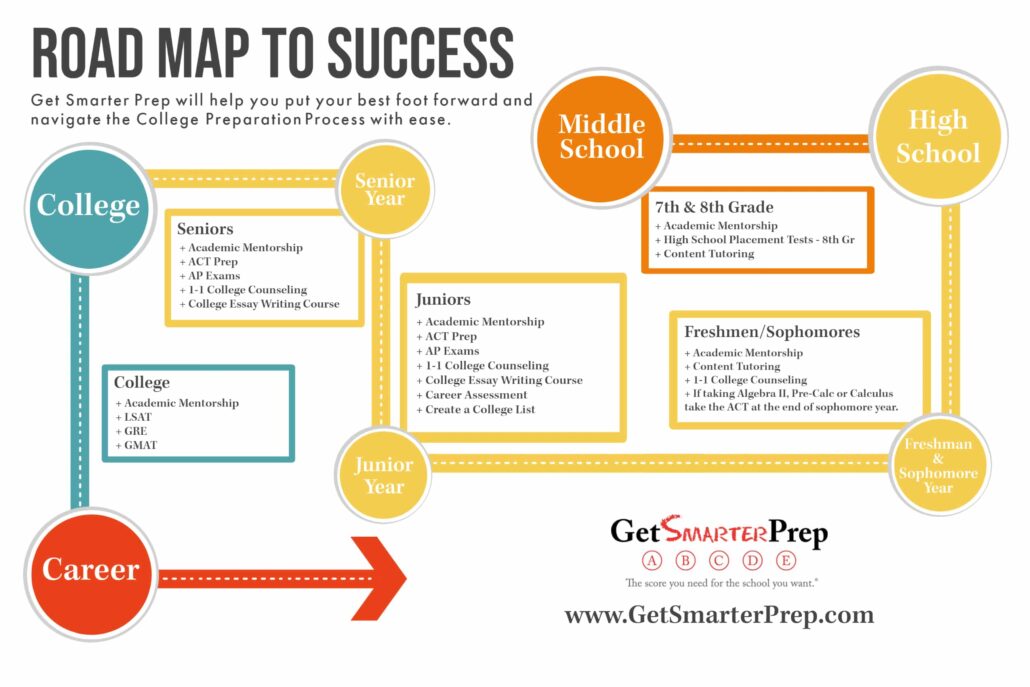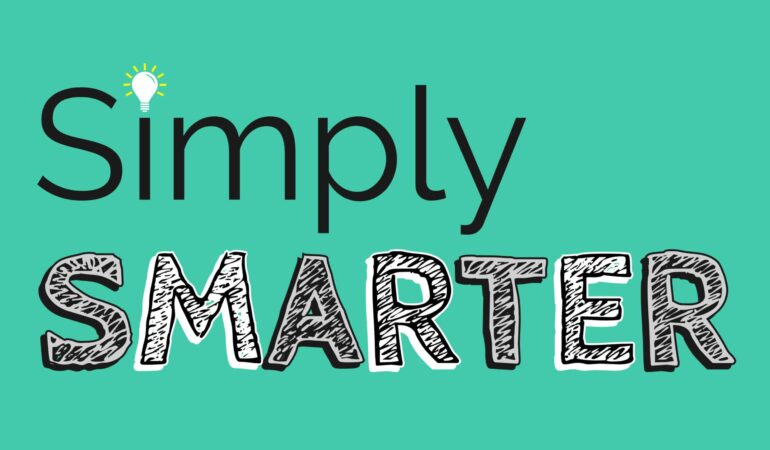A Road Map to Success
High school can be confusing for many reasons, but at Get Smarter Prep, we want the road to success to be clear. That’s why we’ve created a Road Map to Success to help students put their best foot forward and easily navigate the college preparation process. From Middle School to the career you’ve always dreamed of, we are here to help you along the way.

Middle School
Starting in Middle School, specifically seventh grade, students may be invited to be a part of Duke TIP, which is for a program for students who qualify for the 7th Grade Talent Search by scoring in the top 5th percentile on grade-level state standardized tests. If you are chosen, it will give you opportunity to be recognized for your academic talent and give access to multiple resources to help students connect with contests, scholarships, and other programs.
The eighth grade is when you want to start thinking about High School placement tests. If a student has been in a private school or home schooled and going to a public school for the ninth grade, then you must take a High School placement test. Check with your school and see if they offer the test, chances are they do.
If studying simply overwhelms you and you have no idea how to tackle subject tests or need direction learning how to properly study, then study skills tutoring is a great fit for you and something to consider. Now is the perfect time to obtain the skills it takes to study efficiently and properly.
High School
It’s time to dig into your classes and put your best foot forward. Every grade will count towards your overall Grade Point Average (GPA) and be a big part of what colleges and universities look at when considering applicants.
Freshmen:
Freshman year is a great time to start putting together your resume. Make a note of all the different clubs, organizations, volunteer groups, and awards you receive throughout your high school career. Starting your resume as a Freshman will give you a clear view of what you’ve accomplished and save you time from trying to remember what you’ve done throughout your entire high school career.
Sophomores:
If you are taking Pre-Calc or Calculus a good time to take the ACT/SAT is at the end of Sophomore year. Otherwise, plan key activities, take leadership roles within clubs, start thinking about visiting colleges, and make sure you are concentrating on your grades.
Juniors:
If taking Algebra II take the ACT/SAT anytime your Junior year. Get Smarter Prep offers multiple options for test prep including our ACT Course, Semi-Private Tutoring, and Private Tutoring.
Do not slack on your grades. We know your Junior year is super busy, but earning good grades throughout the year is so important! By now, you should have great study habits and effective time management, therefore your grades should be steady.
Seniors:
If you haven’t gotten the ACT score you need for the school you want, you have a couple more opportunities to achieve your goal. Once you’ve grabbed the ACT score you’ve been studying for, start the college application process. Don’t forget to maintain your good grades, volunteer, and of course, have fun!
Sometime between your Sophomore and Senior year, you’ll want to start think about the college application process, from building a college list, to crafting your best essays, to submitting the button on your college applications. Students often find it helping to take a career/major assessment that will gauge your learning style, interests, personality, and career focus. A counselor will go over the results of your assessment and discuss possibilities and paths through your feedback and conversation – discussing careers, as well as possible majors.
Your Road Map to Success doesn’t have to stop after high school nor should it stop after high school! After you get into the college of your dreams, there are other options such as preparing for the LSAT, GRE, MCAT, GMAT or just study skills tutorials. Get Smarter Prep offers classes and private tutoring to help our students succeed through all walks of life.









